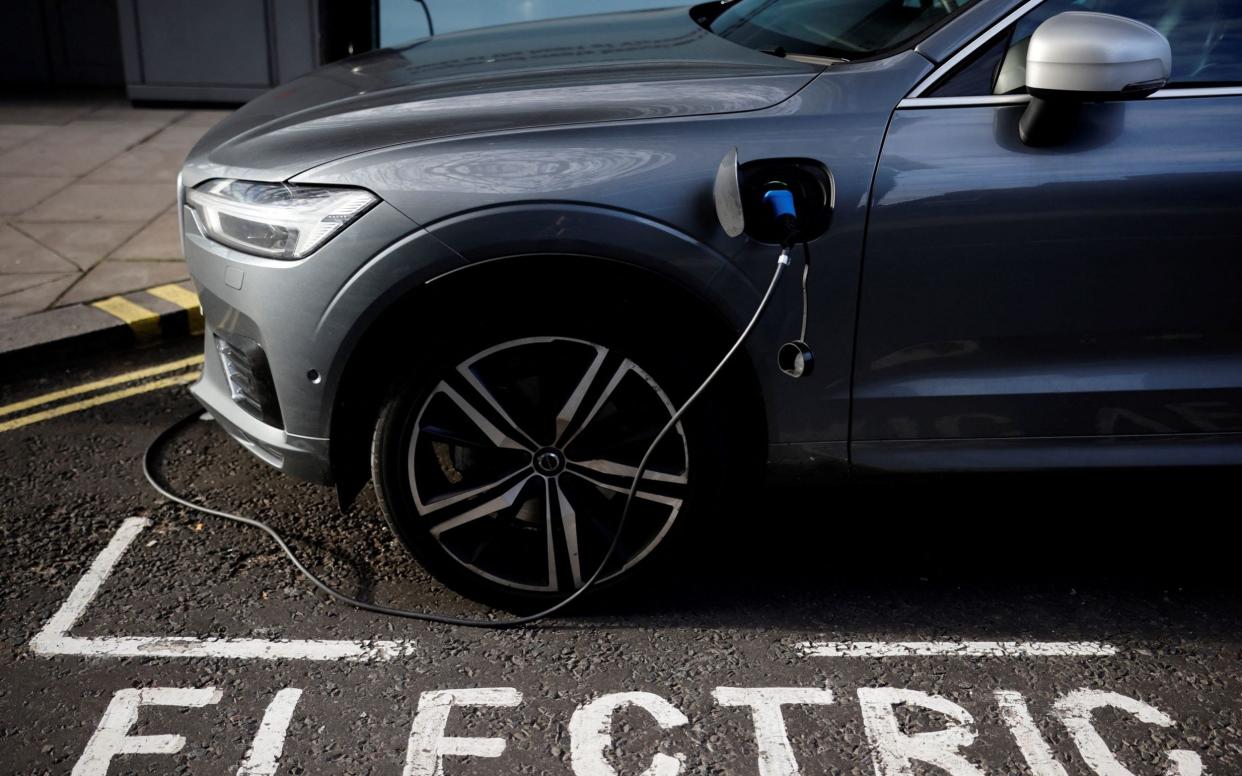Electric car drivers are only £100 better off after three years than if they buy fuel version

Electric car drivers would save an average of just £100 after three years compared to the petrol version of the same vehicles, research has found.
The analysis by Halfords found that, while electric vehicles are on average 47 per cent more expensive to buy than petrol and diesel equivalents, drivers would likely still make a saving after three years because of lower running costs.
Electric cars are seen as a major part of the UK’s push to reach net-zero carbon emissions, and the sale of new petrol and diesel cars will be banned from 2030.
However, critics have warned that the higher cost of electric vehicles could prove prohibitive for many drivers, although the hefty upfront price tags would be expected to come down over time as more second hand models enter the market.
Halfords analysed the biggest-selling electric cars which have a petrol or diesel equivalent, assuming an annual mileage of 10,000.
Among the biggest savings after three years were £800 for those who bought an electric Mini Cooper Classic and £1,650 for a BMW i3, despite costing nearly £10,000 and £4,000 more upfront than their petrol or diesel counterparts.
However, owning an electric Vauxhall Corsa would leave drivers £1,581 worse off after three years than a petrol Corsa, according to the analysis, although this cost would come down with further years of ownership.
Andy Turbefield, head of quality at Halfords, said: “Intuitively we know that electric vehicles can be better value than their nearest petrol and diesel equivalents, but we wanted to make it as easy as possible for people to see it for themselves.”
He added: “We’re not suggesting that people should buy electric because of the long term savings, but if people are delaying purchase because of the upfront cost, this should give them pause for thought.”
Halfords has launched a calculator for those looking to compare the cost of electric vehicle ownership, including data for 102 electric, petrol, diesel and hybrid models.
In some cases, electric vehicles were more expensive on a total cost basis, although Halfords said there are “numerous” examples where going electric is more economical.
A recent survey by energy regulator Ofgem suggested that more than a third of households are unlikely to buy an electric vehicle in the next five years.
Some of the most common reservations included the price of buying a vehicle, the availability of charging points across the country and the range of batteries.
Only 13 models of electric vehicle are currently available for less than £30,000, the Public Accounts Committee recently said as it warned that urgent improvements are needed to infrastructure to meet the Government’s 2030 target.
Analysis by the Policy Exchange think tank has suggested that chargers need to be rolled out at five times the current rate in order to provide proper coverage by that date.
Last week the regulator pledged £300 million to improving the charging infrastructure and providing 3,500 new points.

 Yahoo News
Yahoo News 
